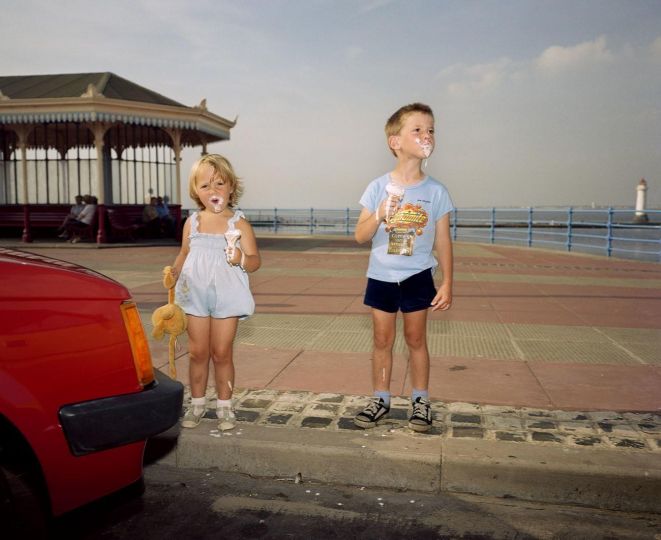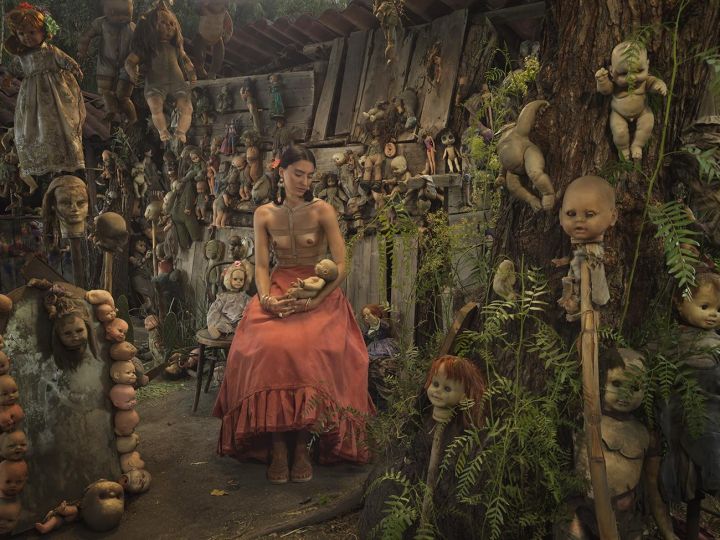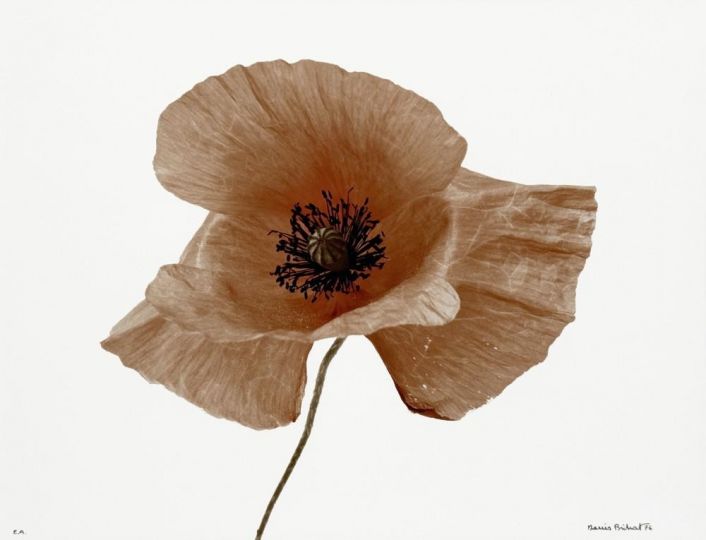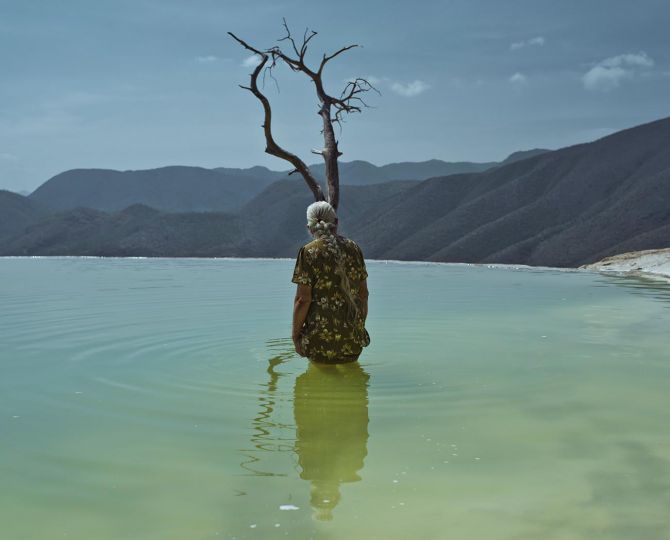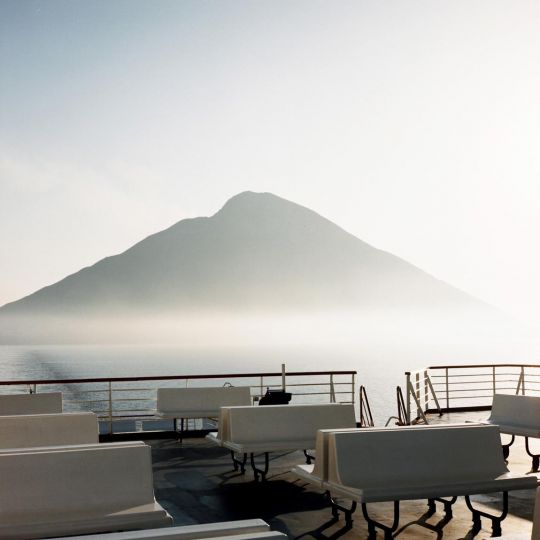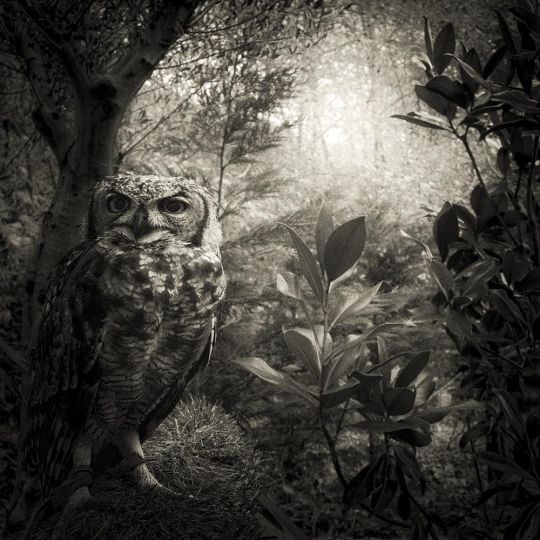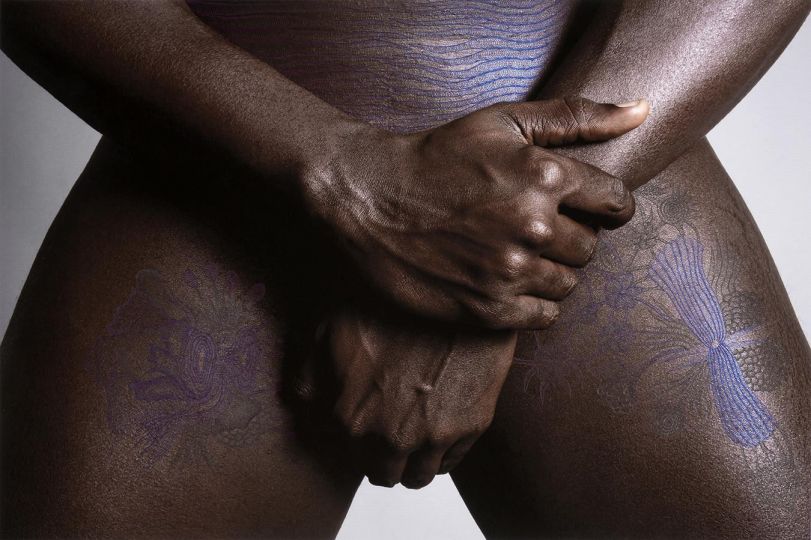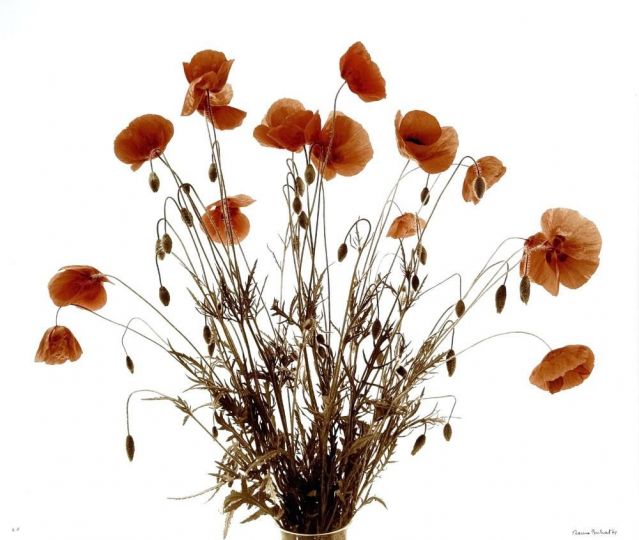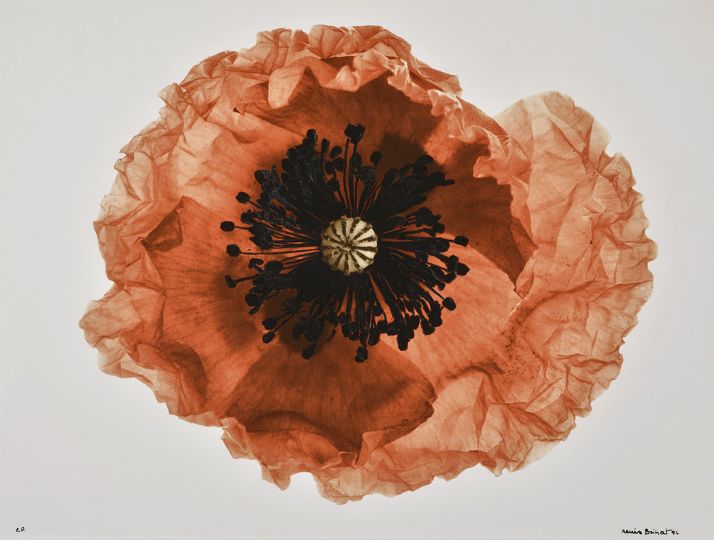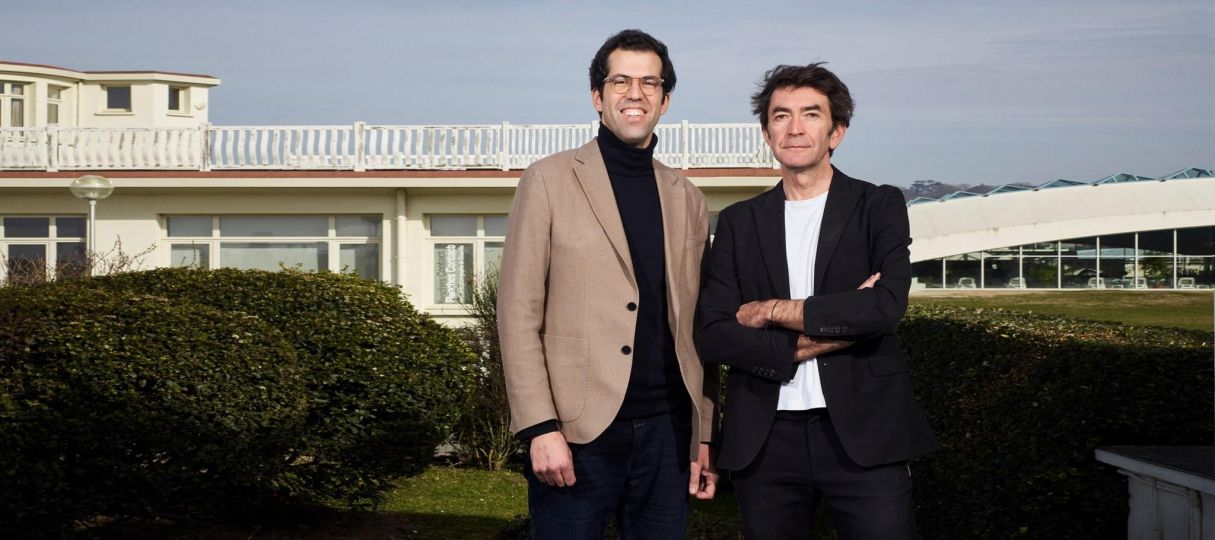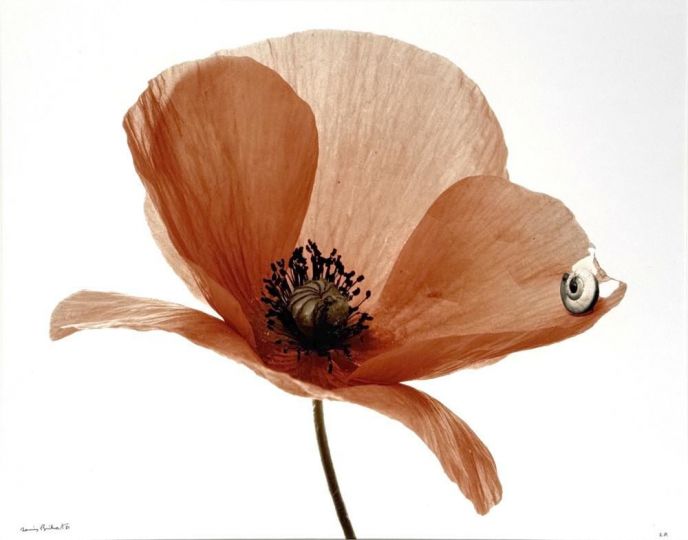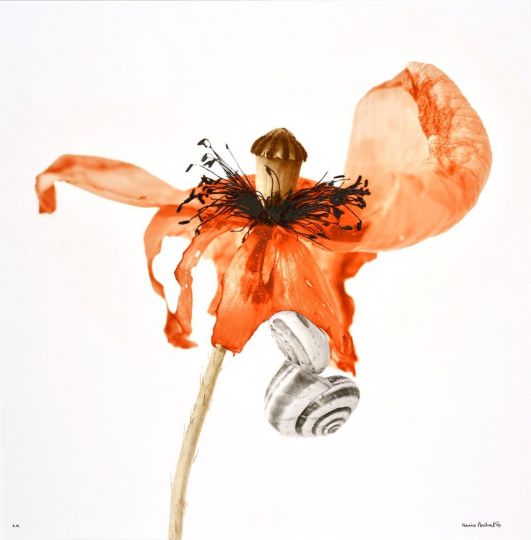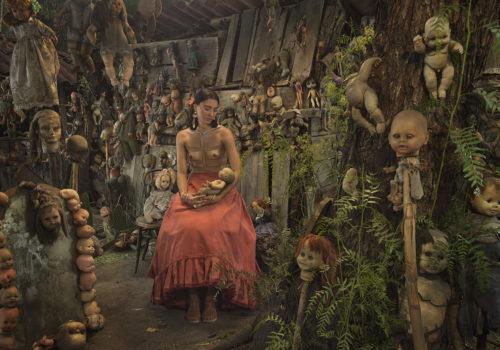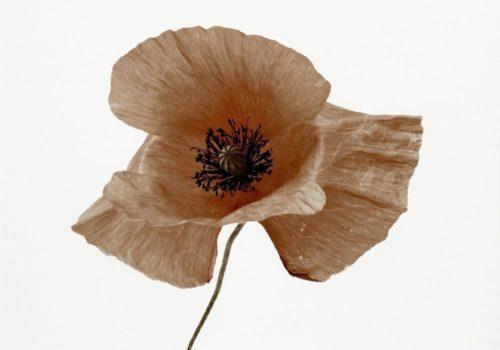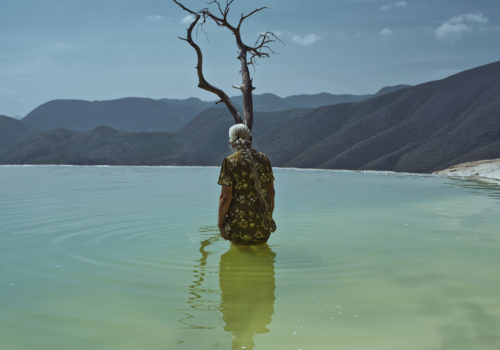Martin Parr was present at the La Gacilly-Baden festival where he was exhibited and gave a conference.
Born in England, the photographer is known for documenting mass tourism around the world and English society. His works are a reference for many photographers. The Eye of Photography was able to ask him some questions about his vision of photography.
The Eye of Photography: How is the United Kingdom today?
Martin Parr: We have a new government, which is good news because we had the Tories (Editor’s note: the Conservatives) for fourteen years. It gives hope. But we had riots, which was very worrying. But no more than in France.
Did you cover these riots?
M.P: No, I didn’t. I don’t normally cover politics, but I would have stayed in the center of Bristol if I wasn’t on holiday at the time or on a business trip, I don’t know. I have already participated in protest marches and I photograph people with their banners. I have many photos of this style.
What do you prefer about the English?
M.P: We are quite an eccentric people! I like the fact that we have many, quite diverse activities. It’s a country that I love and hate at the same time. I hate right-wing people and riots. I love many aspects of our culture, like a good cup of tea, which you can’t find in France. (laugh)
Is irony a way for the English to hide their emotions?
M.P: That’s partly true. We often use irony, sarcasm and jokes. We’re good at small talk, I think. We are sometimes reluctant to show our emotions, you are right.
ODLP: They don’t show them because they’re shy?
M.P: They are reserved and they use humor as a boundary.
ODLP: In this case, photography can be a means of revealing these emotions?
M.P: I try to take photos showing the prejudices and irony of the British and the English, so indeed, it is a means that I use in my work.
ODLP: What subjects do you like to work on?
M.P: I work on leisure in Western societies and more particularly on English leisure. I go to events where there are a lot of people: whether it’s a sea trip, the Highland Games in Scotland or the Agricultural Show in Wales. I need people!
ODLP: Are there always people in your photographs?
M.P: I sometimes take landscape photographs, but I don’t like photographing things that are too beautiful.
ODLP: What is the most exciting thing about your job?
M.P: I’m thinking of going to different events that I’ve never been to before. This year I went to Birdfair for the first time, an event where people buy binoculars and watch birds. It was great. I’m always going to new things, new places.
The Proust Questionnaire with Martin Parr
If I hadn’t been a photographer, I would be…
I took a few acting classes when I was younger, but I wasn’t very good. Otherwise, I like selling, I like this idea of selling and buying, which I put into practice with the foundation (Editor’s note: the Martin Parr foundation). I think I would have been a salesman.
If I were 20, I would…
I would do the same things I did again. I had a very good life. Photography was the thing I devoted the most time to, with my family. It took me to all corners of the world and allowed me to discover interesting places. I was able to make a living from my passion, it’s fantastic!
If I were a song, I would be…
I’m not a very good musician… I like Richard Hawley, Coldplay, my tastes are rather classic. I also like African music.
If I wasn’t English, I would be…
I would be Irish.
If I were a color, I would be…
I would be the red one.
If I were an era, I would be…
I would be the 80s, because at that time the magazines were commissioning documentary photography. It was also at this same time that I discovered color. We all hated Margaret Thatcher, which also motivates this choice. (laugh)
If Margaret Thatcher were in front of you, what would you do?
I would take a photo of it!
What is your biggest regret?
M.P: I remember missing the toppling of the statue of a former slave owner in Bristol in 2022. I would have liked to photograph that moment.
Are you happy with your life?
M.P: I think so, but I am constantly looking to improve. I’m always looking for better shots.
Do you often get bored?
M.P: I don’t like too many meetings and repeating the same protocol. This annoys me.
How does this boredom influence your creativity?
M.P: When you’re bored and suddenly you notice something that’s different, it’s because that thing is potentially interesting.
How important is photography in your life?
M.P: I have dedicated my life to photography. Photography is what I live for. I will continue to take photos until the end of my life. Photographers never retire. We all live to be quite old, because we are mentally and physically inhabited by photography.
Thanks to Martin Parr for taking the time to speak with our media.
Laurine Varnier

